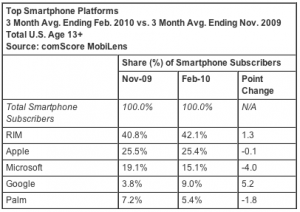Amazon enters the Appstore Fray
Is this a case of YAAS (Yet Another App Store)??
Amazon is preparing an Android Appstore. So should we roll our eyes and say “yeah yeah, one more…whatever…thanks…” ??
Absolutely NOT. There are several good reasons why this is potentially the biggest news regarding Android app sales to date.
Firstly, it must be noted, that gross Android app sales clearly lag behind iPhone app sales, despite the fact that the increasing number of Android handsets and apps on the market has levelled the playing field for 2011. It just seems that few developers are really making much cash on the Android Marketplace, for reasons that have been discussed previously such as billing issues, poor design, a proliferation of dodgy apps and a poor ratings system
Amazon will not make those mistakes. They have the clout. They know how to sell, both physical items and digital. They have a powerful recommendations, ratings and rankings system in place for eBooks. And the kicker: they have an established billing system with millions of educated, credit-card-enabled users in place from day ONE.
Sounds familiar? It should. When Apple launched their App Store the reason their paid apps flew out the door could be attributed in no small part ot the fact that they had a huge base of iTunes users already set up for micro-purchases.
Kindle Blazes a Trail
So what kind of user base does Amazon have to tap into for buying Android apps? Amazon can thank it’s Kindle here. There are probably over 5 million Kindle Device users out there of which quite a few would possess an Android device, or will in the near future. And god-knows how many Android users have already installed the Kindle Android app (it is ranked #11 on Android Market)! It took just 3 days back in early July 2010 for the Kindle Android App to go from 50,000 downloads to 250,000+ downloads. By now it would be in the millions and many of them will have set up their credit cards in Amazon’s system to enable the one-touch purchase feature. I’m one of them – I recently made my first eBook purchase through Kindle Android (for the curious, I bought “In Pursuit of the Gene: From Darwin to DNA” by James Schwartz, for $9.99). I would guess that a Kindle user will find it extraordinarily easy to purchase apps through Amazon’s App Store.
An Appley Approach
Amazon are also taking a more Apple-like approach to determining which apps make it onto their App Store and which ones don’t, without being quite so officious about it. The focus will be on quality (i.e. the app works as stated and doesn’t crash all the time) rather than sheer quantity and perhaps this is what Android needs? I know I know…Android is all about OPENESS!! But when OPENESS is failing to convert to REVENUE, maybe it doesn’t hurt to emulate the other guy…just a little bit.
Lessons from the eBook Market
Amazon are bringing one fairly unique aspect to their App Store: The developer doesn’t set the price, Amazon does. Some developers will find this idea a bit repellent, espcially the loss of control. But they will need to trust in Amazon’s intrinsic understanding of sales patterns. Amazon already does this price-tweaking magic in the eBooks market and it works. For developers they may make less per sale but should see more sales and greater gross revenues.
What does this mean for Google Marketplace?
Nothing really except that they are about to have some serious competition. Which is a good thing. Google are already making some long-awaited improvements to their Marketplace and hopefully in the longer run Android developers will find they can make serious revenue from BOTH channels.
QVCYUU9AXUMY
Posted by David Kainer on January 6th, 2011 :: Filed under vision and trends
Tags :: 2011, Amazon, Android, apps, Kindle, mobile applications


